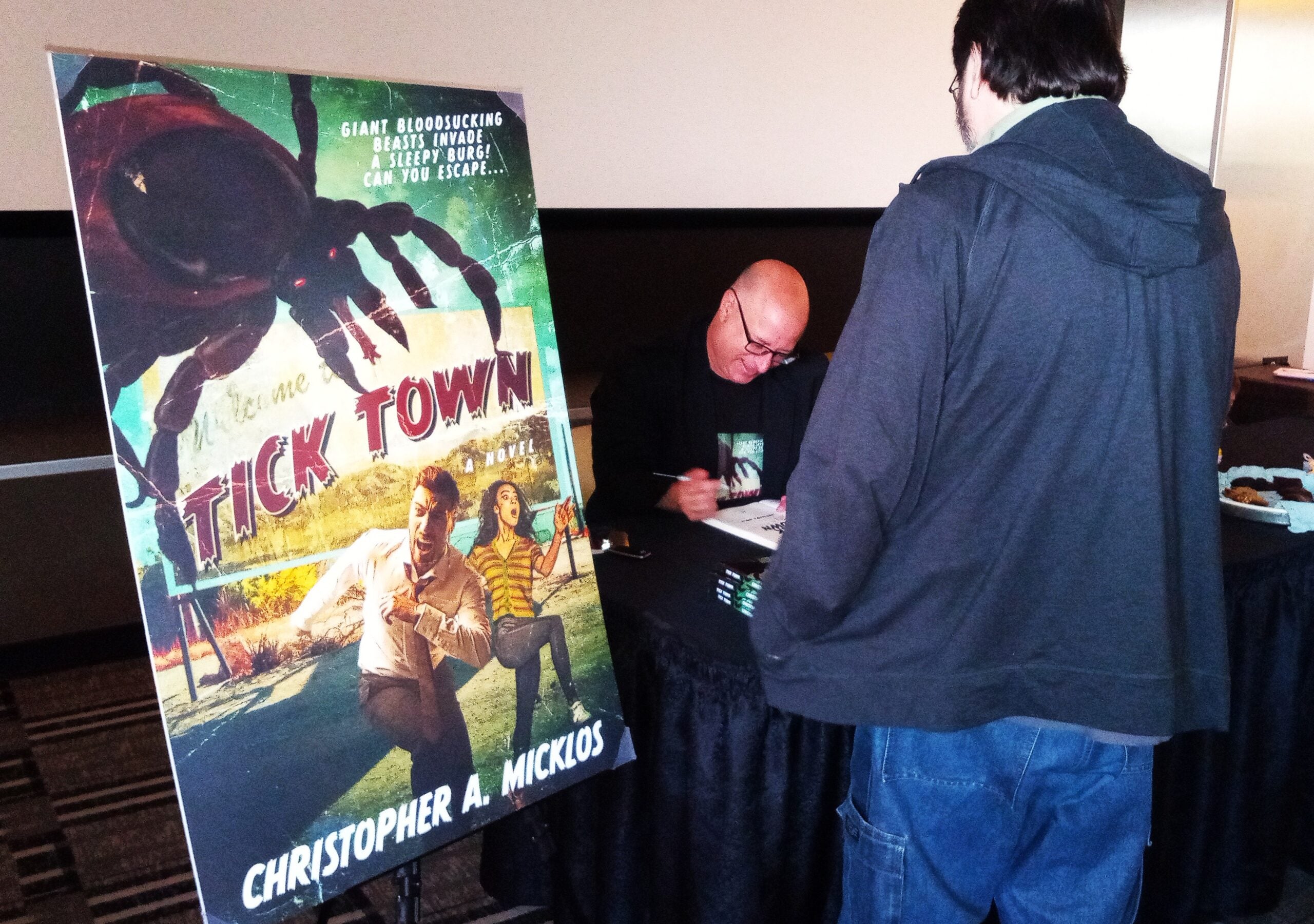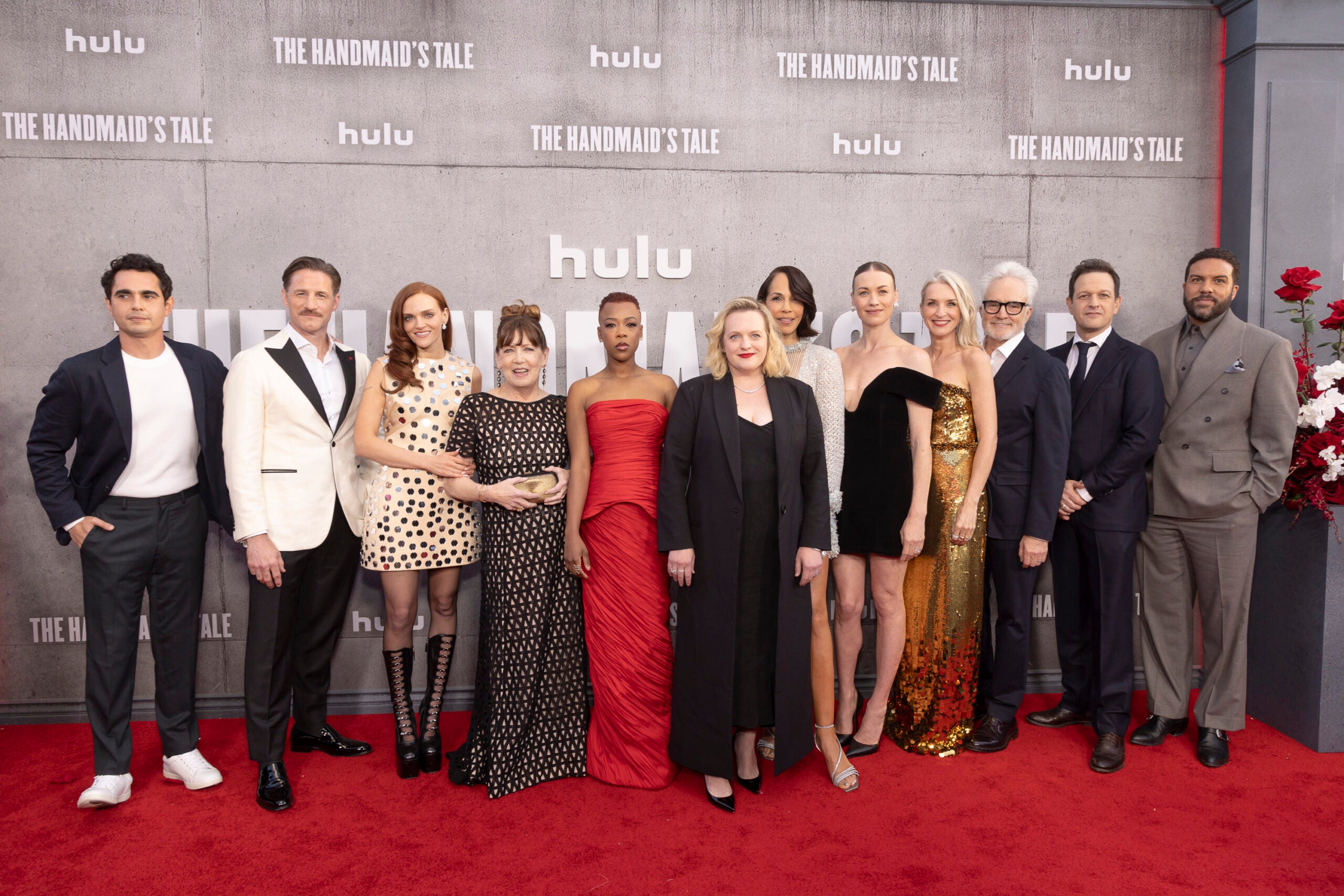Four years ago, Charles Yu joined WPR’s “BETA” to talk about his novel, “Interior Chinatown,” a clever satire of racism that takes us through what it’s like to be Asian in America.
The protagonist is Willlis Wu. Although that’s not quite right. Willis doesn’t even think of himself as the protagonist in his own life.
“Interior Chinatown” won the National Book Award for Fiction in 2020, and now, Yu has adapted the novel into the hit Hulu series of the same name.
News with a little more humanity
WPR’s “Wisconsin Today” newsletter keeps you connected to the state you love without feeling overwhelmed. No paywall. No agenda. No corporate filter.
Yu recently spoke with “BETA” host Doug Gordon about casting Jimmy O. Yang for the role of Willis Wu, and the challenges of bringing an adaptation of his novel to the small screen.
The following interview has been edited for clarity and brevity.
Charles Yu: To be candid, I was terrified because I knew it would be quite an undertaking just to make any kind of show. But this particular adaptation was going to be pretty challenging in terms of how do you pull off what the novel does in a different medium? But I like challenging things. I like things where I get to play or try things that are a little bit scary.
Doug Gordon: Yeah. And your novel is written in the form of a screenplay, complete with the standard courier font. So I’m curious, did that make it easier to adapt into a streaming series, or did it make it more difficult?
CY: Well, it’s a good question. I guess it made it easier as a start because in some ways, it felt like there were bits that you could imagine would work in some form. There were little bits of dialogue or there were action lines and other little scenes that seemed like they might be fun to try to figure out for TV.
But I’d say overall that didn’t help too much because, even though the DNA of the story is the same, the characters are the same, the way the story is told had to be reinvented for the screen.
And that is actually deceptive. The fact that it visually looks on the page like a script has really nothing to do with what would be necessary in order to turn it into something we could produce.
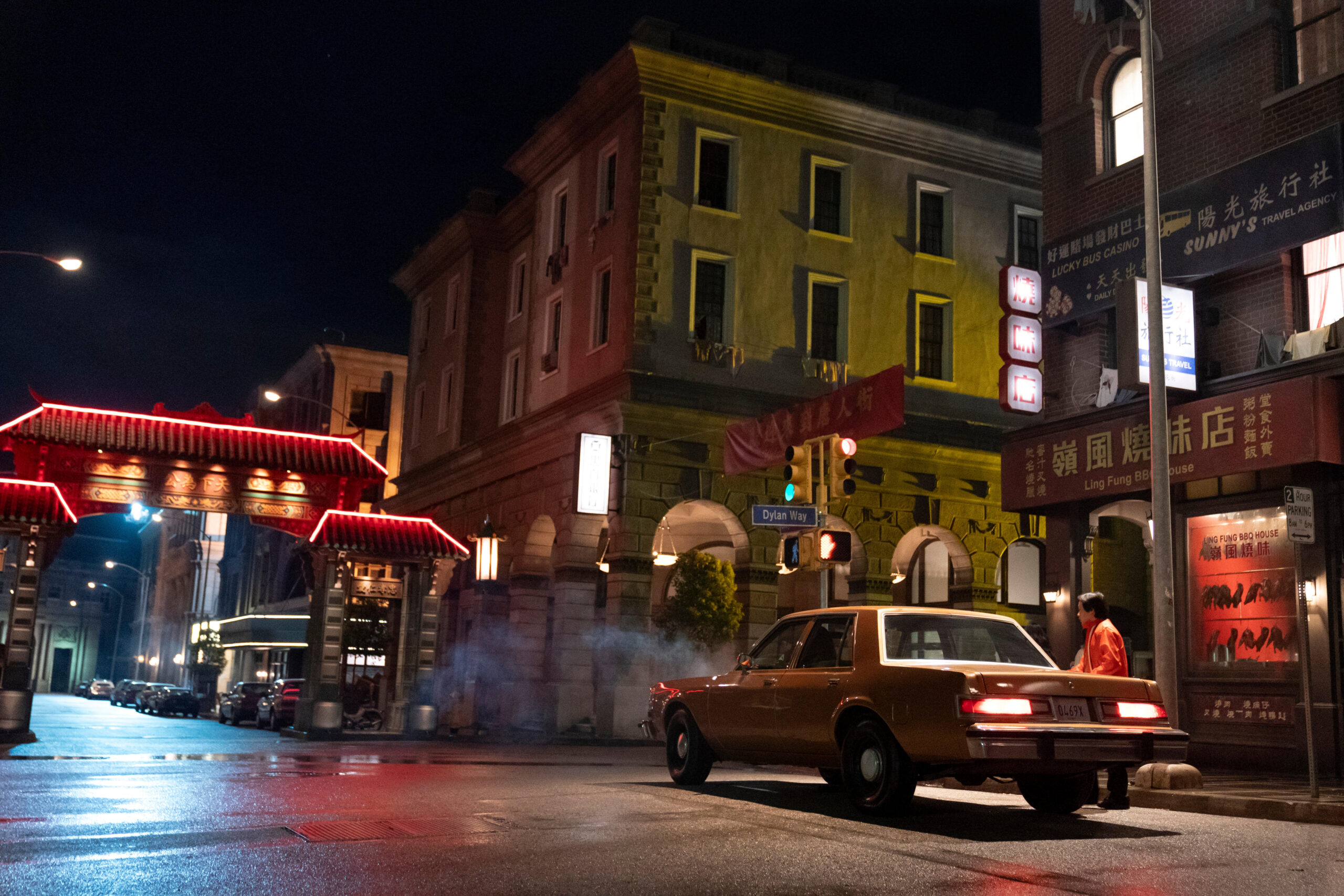
DG: Very well said. I was very intrigued by your description of the Chinatown where Willis Wu lives as an actual place. But also, it’s kind of a state of mind. Can you explain that?
CY: Willis is somebody who sees for himself at the beginning of the story in a pretty circumscribed role. He describes himself as “Generic Asian Man #3,” which is his job in this reality that he lives in. And the reality he lives then is a little bit like a TV show. So if you’ve seen “Wandavision” or “The Truman Show,” it’s this kind of heightened reality where you’re not quite sure what’s real and what’s fake.
And Willis, in the book, holds both of those things in his head at once. The book asks the reader to hold both of those ideas in your head at once. This is both a place where Willis lives and it’s also where he lives in the sense of, we live in our heads. So we’re limited by what we think we can do, by where we think we can go. If Willis doesn’t believe he can leave Chinatown, then that’s as real as any kind of actual physical wall.
DG: You’ve said that as a show, we had to play with that ambiguity in a different way. Can you give us an example of how you played with that ambiguity?
CY: To give one example, one feature of Willis’s world in the novel is the spotlight in a show that the main character gets, to let you know this is where your eyes should go. This is who’s important in this frame, you know? And obviously I just used about 100 words to describe that idea. And you can’t have that text on screen when you’re watching it on Hulu. You’ve got to somehow communicate the idea of Willis not being in the light at first and then finding that light, seeking it out and then being in it at some point in the story. And that means conversations with lots of people who apply their craft and art about, OK, so what kind of lighting?
I always think of Ariel in “The Little Mermaid” when she’s dreaming of being out of the water. Willis coming out of the water into the exciting world he wants to be in. What does the edge of that really look like? Because in the book, I could describe it in prose, but for a set designer or decorator, where is that edge and how sharp is that edge?
DG: You were absolutely right to cast Jimmy O. Yang as Willis Wu. He is great in this. What inspired you to choose him?
CY: Well, he’s really funny. And I think the book has a kind of melancholy quality to it. Willis in the book feels somewhat thoughtful and lonely. And the book, I hope, goes to some entertaining places. But overall, I think it lives very much with him in his head in a very interior story.
I felt like for the TV show, I always wanted it to be funnier than the book was. And I knew I could do that because I’d get to hire a bunch of writers that are actual funny people. And the same with the character Willis. This background guy in a police procedural. To miss that opportunity would have been a shame. So I felt like Jimmy, in addition to being funny, he really has this kind of vulnerability. He has a combination of vulnerability and confidence that really is key to Willis.
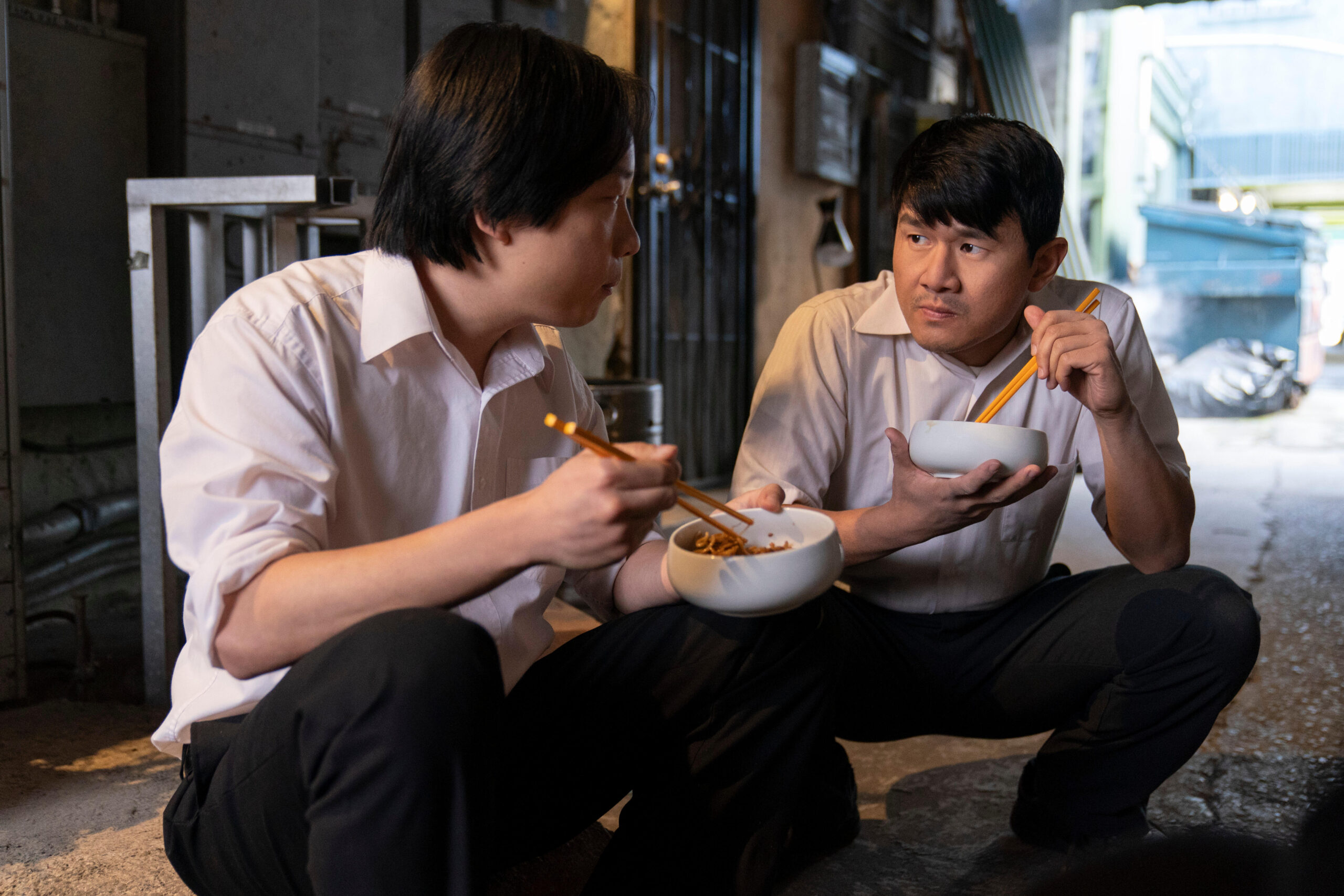
DG: As if there’s not enough already going on in “Interior Chinatown,” you’ve included a show within a show, as you did in the novel. It’s a police procedural with a “Law & Order SVU” feel to it. What role does this show play in “Interior Chinatown”?
CY: Yes. The show is called “Black & White,” and it is very much fashioned after “Law & Order SVU” and a couple of other shows in terms of their look and feel.
The set up is that you’ve got these two lead detectives. They have been doing this job for about 10 years when we meet them in the pilot. And so they’re kind of phoning it in. They could do it in their sleep. They’re quite good at it. And by good, I mean they’re not really good detectives. They’re just good at looking cool doing detective stuff.
To Willis, this is basically the reality he lives in. If you imagine this is a fish tank, Willis doesn’t know he’s in water. Right? He lives in “Black and White,” basically. But he just lives at the margin of the story and has no role in it. And yet, it’s always around him. It’s on the news. Sometimes it’s literally outside his window where he works. And so he has aspirations to be part of that story, because, to him, that’s what it means to have a meaningful life.
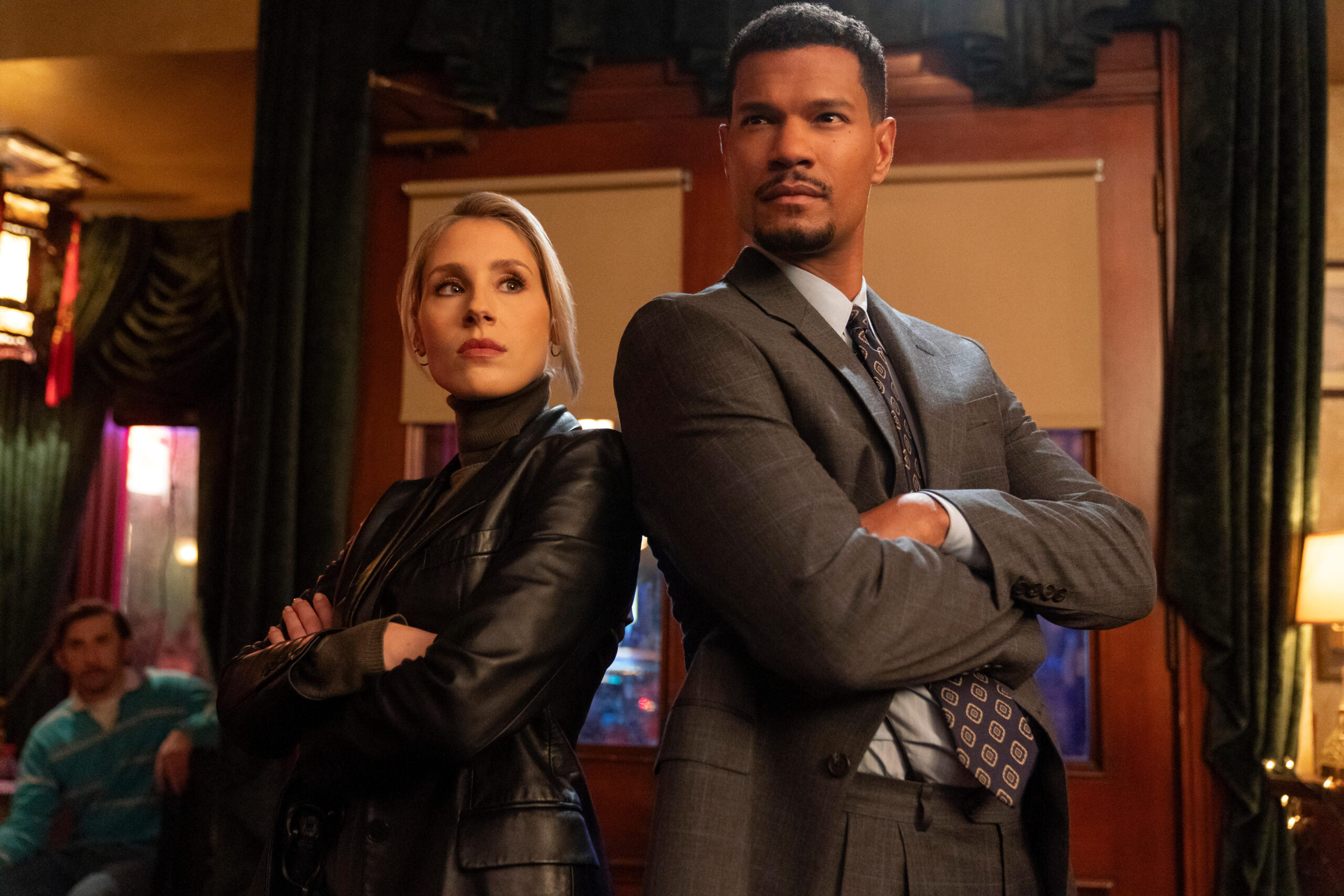
DG: And as you’ve said, as Willis travels increasingly outside of Chinatown, he kind of tricks his way onto the set of the show. It’s something he’s always wanted to be part of. And he carves out more physical space for himself, right?
CY: Yeah, exactly. He lives upstairs from the restaurant in this single room occupancy building, and he doesn’t have much physical space. And he literally has to kind of break out of his confined world of Chinatown and of the restaurant, and carve out his space in a physical way and in a more figurative sense, as I think you’re saying, to create a role for himself.
And that means trying to enter new places. It means trying to speak up, trying to define who he is in a different way than just being a waiter or being someone in the background. And he does that by teaming up with this detective who enters the restaurant and enters his life, Lana Lee. And they kind of form this new partnership and go off in search of Willis’ brother.
DG: Would it be fair to say that Willis’ self-esteem starts to increase when he meets Detective Lana Lee? Because that was kind of the impression I got.
CY: Yeah. There’s this scene in the pilot, which is directed by Taika Waititi, and he’s just got this gift for creating humor out of moments. And so the first time Willis sees Lana, it’s this kind of cinematic moment. It’s very much a kind of male gaze, to be clear, too; he’s clearly objectifying her as this kind of femme fatale, exciting new person in the world.
I think that wakes him up a bit. I think all of a sudden, he snaps to attention because he’s been looking at her on his TV screen as a detective on the news. And all of a sudden, here she is in real life. The idea that she’s come here to talk to him — it’s this dormant thing in Willis, where he always was looking for his shot to have a part in the story, and all of a sudden, the story just arrives on his doorstep.
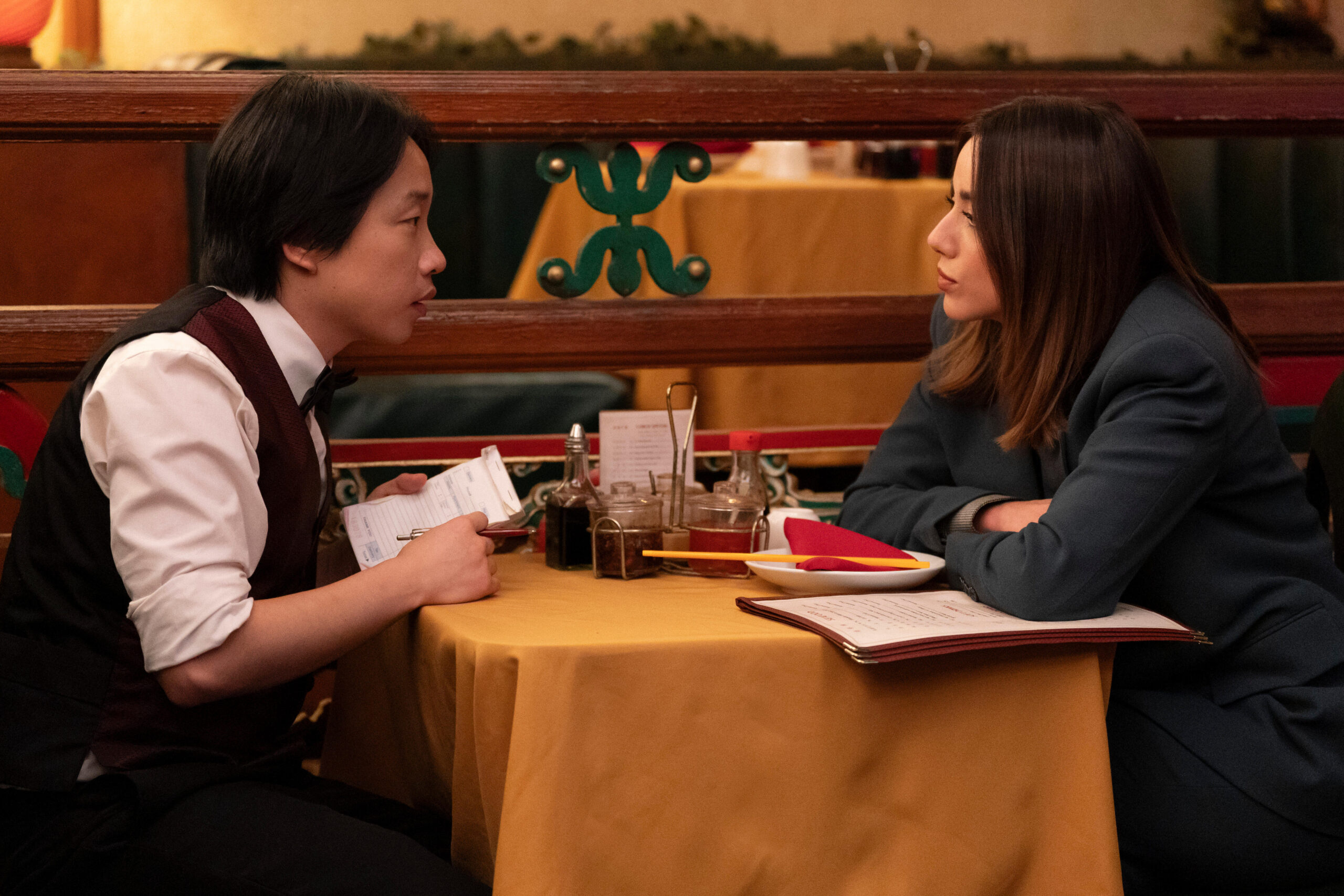
DG: What do your kids think of the “Interior Chinatown” series, if you don’t mind my asking?
CY: I think they’re really proud. They’ve had different feelings because it’s been in their lives since they were very young. They’ve seen me working on the book before they even knew what it was. And then when the book came out, that was its own kind of moment for our family. And they’ve seen me working on the show now, and gotten to meet so many people associated with the show. They came to set and they have now started to watch it. And they’ve got friends who are now watching it, which is really neat. I don’t know what they think, to be honest. They probably won’t tell me, honestly. But I think it’s exciting.
And what I really love for them to see is it takes a lot of work and there’s a reason why I was gone so much. It wasn’t for nothing. And what I hope they take from it is that taking chances is a good thing. Not being afraid to try something new or hard or that you might not fully succeed at. You know, they’ve seen me as a writer get a lot of rejection. And I think in the making of something, there are so many points where you have a choice to make, whether or not you want to keep going. How do you pour yourself into something not knowing how it’s going to turn out? And I really want them to see that.



